Why We Write: In the Presence of Living
While caring for her dying grandmother, author Lisa Saffran gained new perspective on the richness of life in language as well as a renewed perseverance as a creative writer.
Jump to navigation Skip to content
Articles from Poet & Writers Magazine include material from the print edition plus exclusive online-only material.
While caring for her dying grandmother, author Lisa Saffran gained new perspective on the richness of life in language as well as a renewed perseverance as a creative writer.

A look at the psychology of writers block and how scientific studies in creativity offer insight into how writers can use the tools they already have to break through.
My confusion came from a curious warning. Awash in a sea of writers and would-be writers in a drab-walled meeting room at the Association of Writers & Writing Programs Conference a few years ago in Vancouver, B.C., I was listening to author Dinty W. Moore extol the virtues of creative nonfiction writing when suddenly he straightened his stout body and leaned across the podium. "Look out," he cautioned, his tone dire, "the journalists are coming!"
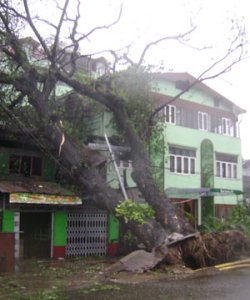
In the cyclone-ravaged country of Myanmar, where citizens face censorship and repression, contributor Stephen Morison Jr. speaks with authors who, despite the country's Orwellian police state, refuse to be intimidated and continue to write.

Joshua Bodwell explores the fiction behind this “writer’s writer” whose characters are as deep and complex as the man who created them.
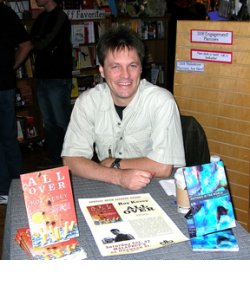
Beijing, despite its cheap food and beer—two dollars worth of Chinese yuan will buy you a nice Chinese meal or a twelve-pack of Tsingtao beer—has yet to become the Paris of the 21st century, but an expat fiction scene is beginning to emerge.
Why do some writers prefer company and background noise, while others need isolation? Why do some need the magical monotony of sameness, and others the inspiration of variety? What does it mean for a writer to be locked into a place? What does place even mean to a writer?
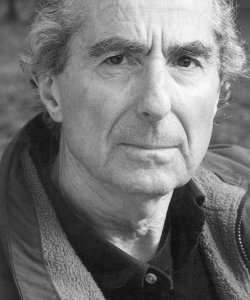
A literary look at the career of prolific author Philip Roth, our Great American Novelist.
Let me be the last—the absolute dead last—to point out that we're in the midst of a memoir craze. My favorite form of procrastination used to be computer solitaire, but now I prefer to chat on the phone with my writing friends and discuss the ongoing boom in autobiographical literature. We speculate like housing developers prognosticating on the real estate market. Will the bubble pop? Will prices continue to rise? Will market trends ever again veer toward literary fiction?
It took a long time to write these words. I'm not referring to the psychosomatic affliction known as writer's block. I mean the delays caused by the process of composition and revision.
From Thoreau to Arthur Miller for centuries writers have been escaping to personal cabins—some even hand built by the writers themselves—for the solitude necessary to slip inward.
At no time on my book tour did I jump up and down, wave my fists, and scream, “It’s a novel! That means fiction!” At least I don’t think I did. It’s hard to be sure, because, in my head, I had that tantrum about three times daily as I traveled from town to town in southern Michigan, reading, signing books, and attending the Ann Arbor Book Festival. You see, my novel, Flight, was set in that region, where I had lived during my high school and college years.
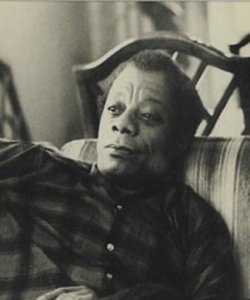
Notes of a Native Son, James Baldwin’s best-known book, was published in 1955 by Beacon Press. Baldwin’s editor then was Sol Stein, whom he’d known since high school. This essay is an excerpt from Stein’s Introduction to Native Sons by Baldwin and Stein, which will be published by One World, an imprint of Random House, next month. The book includes correspondence between Stein and Baldwin that produced Notes of a Native Son.

Only weeks before he turned 55, my father, the poet William Matthews, delivered a manuscript of poems to Peter Davison, his longtime friend and editor at Houghton Mifflin. It turned out to be the last book he wrote. He died of a heart attack on November 12, 1997, the day after his birthday.
At some point every writer must turn her attention from the art of creating to the business of selling. And while many authors would like to avoid the industry altogether, a basic understanding of it—from the top five houses to the independents—is an unavoidable necessity.
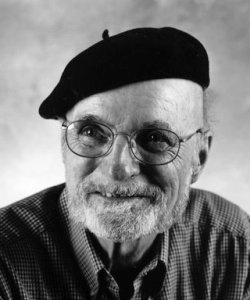
Writers who hang out in academia to help pay the rent are likely to find that their job description comes to include inviting other writers to visit their campus and then hosting them through their visit, introducing them to their lecture audience, and sitting in on the informal sessions with students that typically complete the visitor’s tour of duty. Such visitations are, I believe, a generally worthwhile feature of any college writing program: beneficial to the visitor, obviously, who gets paid or otherwise rewarded and may possibly gain a few additional readers; potentially enlightening for the visitor’s audience (even those whose curiosity may be more sociological, anthropological, or even clinical than literary); and at least marginally beneficial for the host as well, as I shall attempt to illustrate.
When James Merrill died in 1994, he willed his large, turn-of-the-century house on Water Street to the Borough of Stonington, Connecticut. The village improvement committee was free to use the building any way it desired; Merrill made no stipulation in his will. But the National Book Award–winning poet had been an important figure in the village's ongoing literary tradition. The committee decided to keep Merrill's legacy alive by creating a writer-in-residence program. Since 1996, a lucky poet or scholar has lived, for either six months or a full year, in Merrill's curious home across from the harbor. Writers chosen for residency are notified more than a year in advance. Several Merrill House residents have reported "the happiest period of my life," surrounded by Merrill's books and knickknacks, far removed from the snarl of city life—Boston, New York, or Louisville, in our case.
This is not an essay. Though maybe, in a way, it is. Because it's a strange thing about essays—even talking about them, trying to get at what they are, it's hard not to cleave to the spirit of the essay, that inconclusive, most outwardly formless of forms, which spills and seeps into so many other kinds of writing-memoir, feature, commentary, review—and punctuates every assertion with a qualification, a measure of doubt, an alternate possibility.
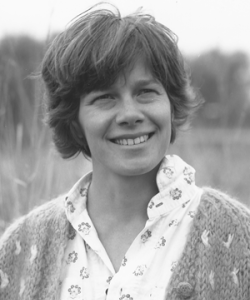
Bob Wolf's Publishing House.